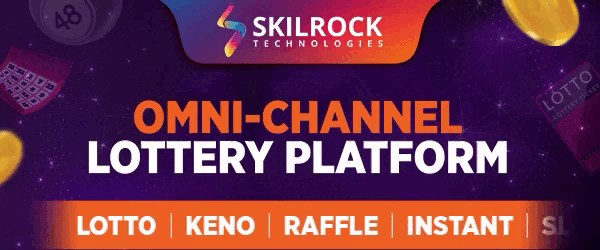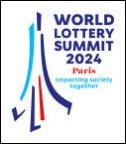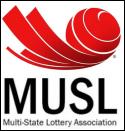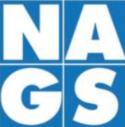Gaming: China: Quasi-Gambling and the Sale of Products by Means of Mystery Boxes
This article is an extract from Getting The Deal Through (GTDT) Gaming 2023. Click here for the full guide.
CHINA (June 2, 2023) — Gambling has been prohibited and outlawed in the People’s Republic of China (PRC) ever since the 1980s. Depending on the circumstances of each case, illegal gambling can be met with administrative sanctions under the Laws of the PRC on Administrative Penalties for Public Security, or attract criminal liabilities under the Criminal Law of the PRC, or both. It is also worth mentioning that, from 2020 onwards, institutions including the Supreme People’s Court of the PRC, the Supreme People’s Procuratorate of the PRC and the Ministry of Public Security of the PRC have repeatedly introduced judicial interpretations and supplementary provisions targeting cross-border gambling, lengthening and re-emphasising its dedication to cracking down on cross-border gambling activities.
Nevertheless, if we are to take a step back, from the legal perspective there exists a much broader concept than mere gambling, which is what we refer to as ‘behaviours building upon the utility of uncertainty’ or as an example of ‘aleatory contract’. The core hallmark of gambling is its nature of uncertainty; however, as we see from many other settings, such utility of uncertainty has been well applied legally in the retailing and video game industries, making the leap into a new business model. These utility of uncertainty activities have underlying features similar to gambling, but can still be differentiated from it, and we sometimes refer to these activities as quasi-gambling.
Among the sea of quasi-gambling activities, the most typical and popular example would no doubt be ‘mystery boxes’. The sale of products by means of mystery boxes has rapidly become the trend nowadays, the theory behind this ‘hunger marketing’ mode being that it recognises consumers’ cognitive appetite and curiosity in betting on an uncertain future. This marketing mode has led to the great success of PopMart and attracted other enterprises to mimic the strategy by launching similar business models, gradually creating the illusion that anything can be ‘mystery boxed’.
In response to the sale of mystery boxes, on 10 January 2022, the Shanghai Municipal Administration for Market Regulation promulgated the Notice to Implement Compliance Guidelines for Business Activities of Mystery Boxes in Shanghai (No. 20220014), with the aim to regulate this business model, also signaling the government’s attention in this regard and its intention to intervene.
In this chapter, we aim to outline and identify the characteristics of sales through mystery boxes, and its legal boundaries. We also aim to identify how quasi-gambling should be differentiated from gambling – in other words, to find the borderline in defining the legal status of quasi-gambling.
In reality, whether or not mystery boxes are legitimate depends on whether real merchandise has been exchanged as a basis of the sale, and this question gives rise to several important considerations, as follows.
Whether the merchandise in fact exists and is allowed to be transacted legally
First and foremost, mystery boxes to be sold on the market cannot be empty. In such case, the subject matter of the sale becomes a mere ‘probability’; a probability that has been sold on the market for a consideration with no repayment of principal nor interest, which in fact constitutes a ‘lottery’ pursuant to article 2 of the PRC Lottery Regulations (the Regulations). Under the Regulations, the sale of lottery tickets without the express permission of the State Council is an illegal act.
Article 2 of the Regulations states that:
‘lottery tickets’ under these regulations refers to vouchers that are licensed and sold by the state in accordance with law for the purpose of raising social welfare funds and promoting the development of social welfare undertakings. Natural persons voluntarily purchase them and obtain the opportunity to win the lottery in accordance with specific rules. The lottery ticket does not return the principal amount and does not accrue interest.
Article 3 of the Regulations states that:
the State Council authorises the issuance of welfare lotteries and sports lotteries. The issuance of other lottery tickets without the permission of the State Council is prohibited. It is forbidden to issue or sell overseas lottery tickets within the territory of the People’s Republic of China.
It is worth mentioning that a number of e-commerce platforms have launched such marketing strategies as ‘one-dollar Groupon’. More specifically, each user will pay 1 yuan to purchase one ‘portion’ of probability, and in the end only one user will win the goods, with other users getting nothing. The foregoing in essence already constitutes sale of lottery tickets. Unsurprisingly, this mode has already been criticised by the Office of the National Leading Group for the Special Rectification of Internet Financial Risks under the Opinions on the Categorisation and Disposal of the Online ‘One-Dollar Purchase’ Business Model, which makes clear that such marketing strategy has the potential to be defined as disguised gambling or fraud.
Secondly, the goods for sale in the mystery boxes must be legally permitted for transaction; of course, this is mainly from the perspective of the legality of the transacted goods and the protection of consumer rights and interests, rather than from the perspective of differentiating gambling.
In this regard, mystery boxes selling pets are strictly prohibited, as are items that require special qualifications and special supervision before sales, including tobacco, alcohol, drugs and other prohibited substances.
Whether the merchandise for sale can be converted into legal currency
Where sales are made through mystery boxes, it is quite common that particular mystery box merchandise becomes highly coveted due to its rarity, which makes its market value much higher than other merchandise (these items are known as ‘hit’ or ‘hidden’ items). In this case, mystery box sales platform will not be allowed to repurchase the aforementioned merchandise with legal currency, thus avoiding the occurrence of the ‘currency – mystery boxes – currency’ circle of funds, which in fact satisfies the elements of a casino.
Furthermore, under no circumstances may mystery box sales platforms organise or fund any secondary market trading platform that encourages secondary transactions between users regarding the sold merchandise. Specifically, mystery box sales platforms shall not encourage users who have obtained a hit or hidden item to resell in order to obtain high economic returns by means of price manipulation, official pricing or call auction, thus enticing users to keep buying for the sake of high economic returns instead of adhering to the basic principles of rational consumption and their actual needs.
It is worth mentioning that the criteria for whether the sold merchandise is allowed to be converted into legal currency also apply to virtual goods, especially the virtual currencies issued by different consumption platforms (such as video games platforms, competition platforms and e-commerce platforms). The operation of the above platforms generally includes the following steps:
- to start with, users are required to top up in legal currency in order to obtain virtual currency, and users are encouraged to actively introduce new users in order to obtain marketing incentives (ie, more virtual currency);
- secondly, users are encouraged to win or lose virtual currency on the platform based on ‘the utility of uncertainty’ (such as betting on the result of competitions or lucky roulette) under the rules specified by the platform; and
- finally, users may convert their virtual currency (or merchandise purchased with their virtual currency) to legal currency (ie, cash), or economic interests equivalent to legal currency, by way of a repurchase by the official platform or a transaction on the designated secondary market. Thus, similar to the above analysis, a circle of ‘legal currency – virtual currency – legal currency’ is created, resulting in the crime of running a casino.
In summary, the key to determining whether quasi-gambling behaviour constitutes gambling lies in whether real merchandise or services have been exchanged as a basis of the sale, rather than merely selling probabilities, and whether it provides a circle of cashing to realise ‘luck’. Without the above ‘red flagged’ elements, quasi-gambling itself does not give rise to risk of criminal liability, but of course, it may be subject to restrictions under the Laws of the PRC on the Protection of Consumer Rights and Interests, and the Laws of the PRC on Anti-Unfair Competition.
With increasingly brisk business model innovation, we believe the Chinese government is becoming more open to business modes that stem from the utility of uncertainty under different consumer contexts, and, in the spirit of guidance rather than prohibition, is gradually allowing innovation and development within the limits of the law, with the premise of course that such behaviour does not cross the legal bottom line of gambling, leaving the ‘monster unwilling to be awakened’ alone.
This article is an extract from GTDT Gaming 2023. Click here for the full guide.
SOURCES: Jincheng Tongda & Neal – Lexology.
Tags: gambling, China, GTDT, mystery boxes





























